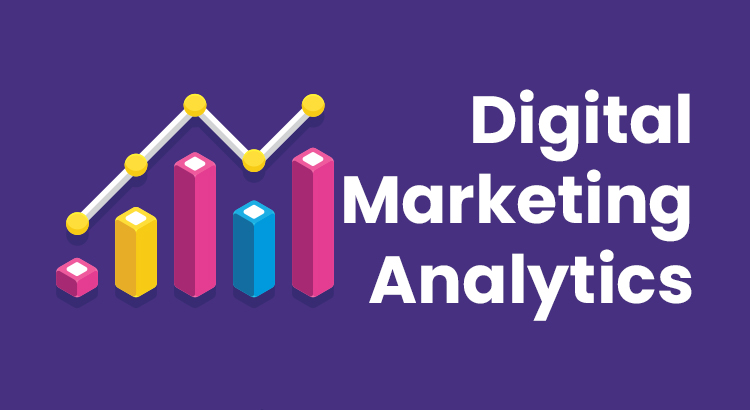Digital marketing analytics empowers marketers to navigate the digital realm with precision and effectiveness. This comprehensive guide delves into various aspects of digital marketing analytics, exploring its definition, benefits, tools, and examples.
List of Contents
- What Are Digital Marketing Analytics?
- Benefits of Digital Marketing Analytics
- Digital Marketing Analytics Examples
- Digital Marketing Analytics Tools
- Summary of Digital Marketing Analytics
What Are Digital Marketing Analytics?
Digital marketing analytics encompass the quantitative measurement and analysis of online content performance, spanning advertising campaigns, social media endeavors, and website interactions.
These analytics furnish invaluable insights into customer behavior and campaign effectiveness, furnishing marketers with the ammunition needed to refine and optimize their strategies.
By analyzing digital data sources, digital marketing companies gain a deeper understanding of audience responses and campaign efficacy, thereby refining their marketing strategies for enhanced performance and engagement.
Benefits of Digital Marketing Analytics
The role of data analytics in digital marketing is listed below.
Understanding Customer Preferences
Analytics unveil intricate customer demographics and preferences, aiding marketers in crafting tailored campaigns that resonate with target audiences.
Optimizing Marketing Campaigns
Armed with granular insights, marketers can fine-tune their marketing strategies to align with customer behavior and preferences, thereby enhancing campaign efficiency and effectiveness.
Enhancing Personalization
Personalized marketing messages yield superior engagement and conversion rates, a feat made achievable through insights garnered from digital analytics.
Improving Customer Experience
By tracking user actions and identifying pain points, marketers can enhance website navigation and streamline user experience, thereby fostering higher conversion rates and customer satisfaction.
Predicting Customer Behavior
Analytics empower marketers to discern patterns and trends, enabling predictive analysis that forecasts future behaviors and trends, thereby steering marketing strategies in alignment with evolving consumer preferences.
Facilitating Data-Driven Decisions
Through robust data analysis, marketers glean actionable insights that underpin informed, data-driven decisions, fostering agility and adaptability in an ever-evolving market.
Digital Marketing Analytics Examples
Marketing analytics encompass a diverse array of metrics and indicators, each offering valuable insights into campaign performance and customer behavior. Examples include:
- Website Traffic: Metrics such as page views, unique visitors, bounce rate, and time on page offer insights into website engagement and user behavior.
- Sessions: Tracking overall site visits provides a holistic view of website traffic and engagement levels.
- Product Information: Metrics like product page views, ad engagement, and sales facilitate the evaluation of product performance and marketing effectiveness.
- SEO Performance: Key indicators such as keyword rankings, search traffic, and share of search shed light on SEO effectiveness and visibility.
- Social Media Engagement: Metrics like likes, shares, and comments gauge social media campaign performance and audience engagement.
- Traffic Sources: Understanding referral sources aids in optimizing marketing channels and allocating resources effectively.
- Customer Retention: Monitoring new visitors, returning visitors, and conversion rates enables marketers to assess customer loyalty and retention efforts.
- Customer Feedback: Insights from customer feedback channels like surveys, reviews, and complaints inform product improvements and marketing strategies.
Digital Marketing Analytics Tools
1. HubSpot Marketing Hub
Offering a consolidated platform for customer-related data, HubSpot streamlines data analysis and facilitates personalized marketing strategies.
2. Google Analytics
Renowned for its robust analytics capabilities, Google Analytics furnishes comprehensive insights into user behavior across websites and apps, empowering marketers with actionable data.
3. SEMrush
An all-in-one marketing platform, SEMrush delivers a suite of analytics tools geared towards optimizing SEO performance and driving organic traffic growth.
4. Mailchimp
Beyond email marketing, Mailchimp’s AI-powered features facilitate website setup, automated marketing, and audience segmentation based on purchase behavior.
5. Adverity
With a focus on data integration and visualization, Adverity empowers marketers to harness data from diverse sources and derive actionable insights through intuitive dashboards.
Summary of Digital Marketing Analytics
Digital marketing analytics empowering marketers with the insights needed to craft targeted, impactful campaigns. By leveraging a diverse array of analytics tools and metrics, marketers can navigate the digital terrain with confidence, driving engagement, conversions, and sustained business growth.
Frequently Asked Questions
What is Digital Marketing Web Analytics?
Digital marketing web analytics involves the systematic analysis of website data to gauge the effectiveness of digital marketing campaigns. It provides insights into audience preferences, optimizing strategies for enhanced user experience and campaign management.


